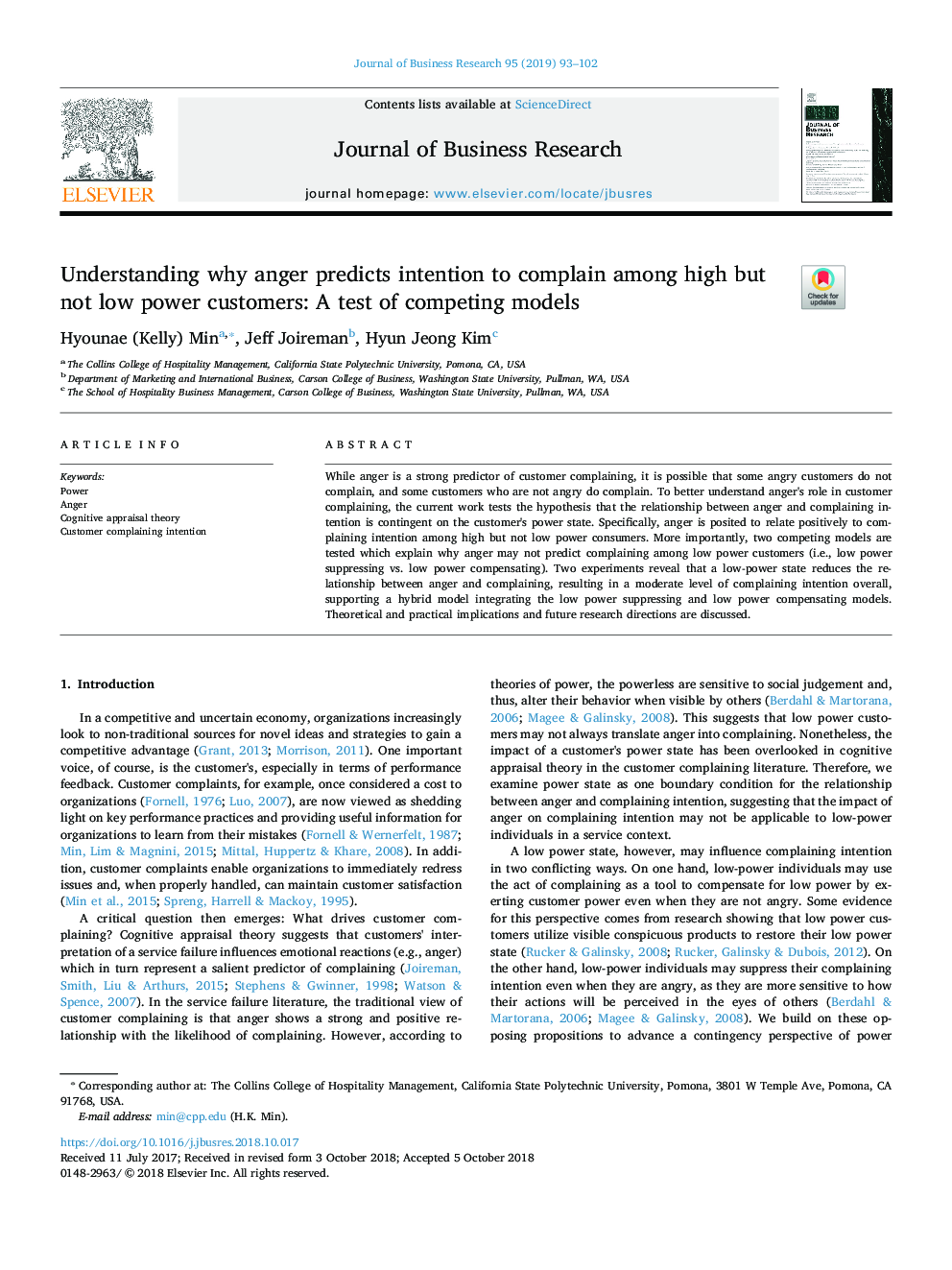| Article ID | Journal | Published Year | Pages | File Type |
|---|---|---|---|---|
| 11009872 | Journal of Business Research | 2019 | 10 Pages |
Abstract
While anger is a strong predictor of customer complaining, it is possible that some angry customers do not complain, and some customers who are not angry do complain. To better understand anger's role in customer complaining, the current work tests the hypothesis that the relationship between anger and complaining intention is contingent on the customer's power state. Specifically, anger is posited to relate positively to complaining intention among high but not low power consumers. More importantly, two competing models are tested which explain why anger may not predict complaining among low power customers (i.e., low power suppressing vs. low power compensating). Two experiments reveal that a low-power state reduces the relationship between anger and complaining, resulting in a moderate level of complaining intention overall, supporting a hybrid model integrating the low power suppressing and low power compensating models. Theoretical and practical implications and future research directions are discussed.
Keywords
Related Topics
Social Sciences and Humanities
Business, Management and Accounting
Business and International Management
Authors
Hyounae (Kelly) Min, Jeff Joireman, Hyun Jeong Kim,
